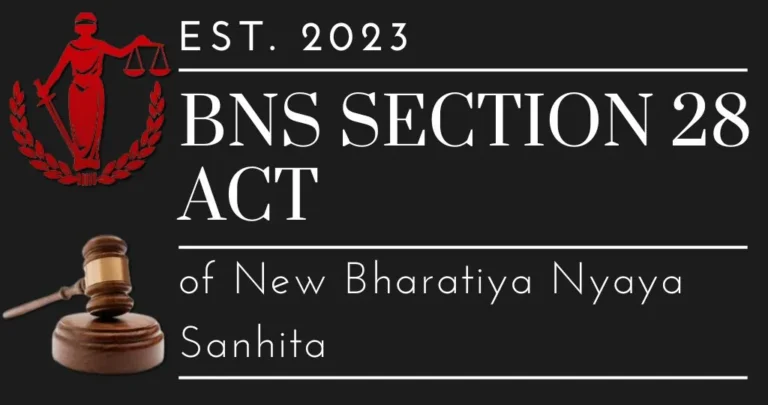
Section 4 and Section 5 of the Bharatiya Nyaya Sanhita 2023 Explain Different Types of Punishments and Their Commutation
The Bharatiya Nyaya Sanhita, 2023 (BNS) is an important law that classifies various crimes and their respective punishments in India. Chapter II of the law discusses the various types of punishments that can be awarded to criminals and how these punishments can be altered under special conditions.
Types of Punishments
According to the Bharatiya Nyaya Sanhita, 2023, various punishments are given in accordance with the level of the crime. The harshest of all punishments is the death penalty, which is given for the most serious crimes such as murder or terrorism. Another strict punishment is life imprisonment in which the accused individual has to stay in prison for their whole life.
Imprisonment can also be of two kinds: rigorous or simple. In rigorous imprisonment, the criminal has to undergo hard labor, which is generally awarded for offenses involving violence or grievous harm. In simple imprisonment, the criminal is kept in jail but is not forced to do manual labor. This is generally awarded for minor offenses, like defamation or petty fraud.
For More Updates & Regular Notes Join Our Whats App Group (https://chat.whatsapp.com/DkucckgAEJbCtXwXr2yIt0) and Telegram Group ( https://t.me/legalmaestroeducators ) contact@legalmaestros.com.
For More Updates & Regular Notes Join Our Whats App Group (https://chat.whatsapp.com/DkucckgAEJbCtXwXr2yIt0) and Telegram Group ( https://t.me/legalmaestroeducators )
In certain instances, the property of an offender can be seized by the government. This is when an individual has acquired wealth illegally, for example, through drug dealing or money laundering. Another type of punishment is a fine, where the offender is required to pay a certain amount of money as punishment. For petty offenses, the court can also impose community service, whereby the criminal has to do work for the public good, for example, cleaning the streets or assisting in public welfare schemes.
Commutation of Sentences
The law permits the government to commute a punishment to a lesser one under given circumstances. This is referred to as commutation of sentence. In terms of Section 5 of the Bharatiya Nyaya Sanhita, 2023, the concerned government may commute a punishment without the criminal’s consent. Commutation of sentence finds its rationale in Section 474 of the Bharatiya Nagarik Suraksha Sanhita, 2023.
The power to commute a sentence is based on the nature of the crime. If the crime is governed by laws under the central government, for example, crimes related to national security, then the central government can alter the sentence. If the crime is governed by state laws, then the state government can make this decision.
For instance, if an individual is sentenced to death, the government can lessen the punishment to life imprisonment. Likewise, the sentence of imprisonment with hard work can be converted to imprisonment of a simple type, or a person who has been directed to pay a fine can be allotted community service.
Importance of Sentence Commutation
The power to commute sentences gives the legal system flexibility. It enables the government to take into account new evidence, humanitarian considerations, or changes in the law when determining a punishment. At times, an individual might have been sentenced harshly because of stringent laws at the time, but society’s perception of the crime can change later, and the punishment needs to be reviewed.






